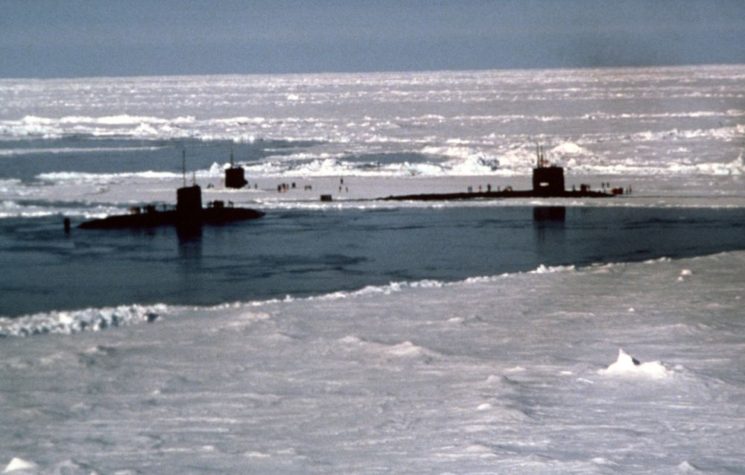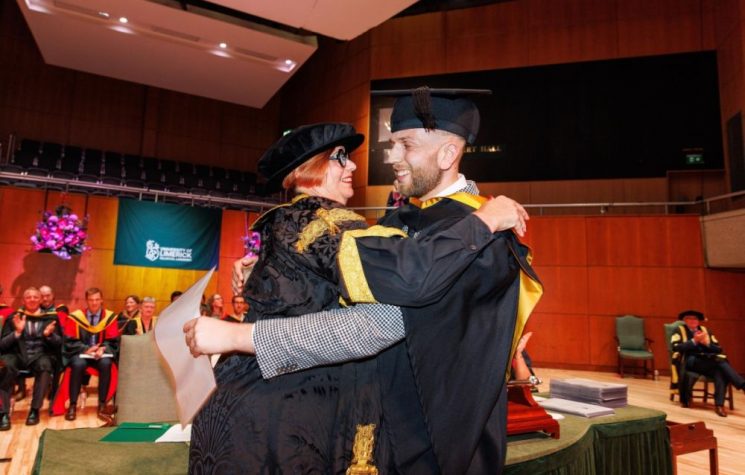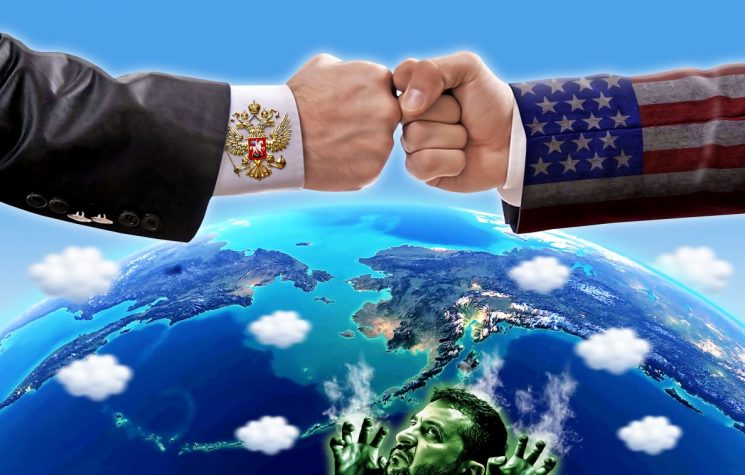At a July 9 speech to the 2nd Global Manufacturing and Industrialization Summit in Yekaterinburg, Russia, President Putin presented a brilliant intervention into the visionless anti-growth (and anti-human) ethic characteristic of the neo-liberal world order when he made Russia’s leadership in fusion energy a national priority.
Speaking to 2500 representative from the public and private sector, President Putin laid out the paradox of humanity’s need for development which has often come at the expense of the health of the biosphere by saying: “It is not yet clear how to combine long term development and production build up while preserving nature and high living standards”.
Attacking the anti-growth technocrats who are promoting a halt to progress and decrease of the world population, Putin said “it comes down to appeals to give up progress which will make it possible at best to perpetuate the situation and create local well-being for a select few. At the same time, millions of people will have to settle for what they have today, or it would be more appropriate to say what they don’t have today: access to clean water, food, education and other basics of civilization”.

Separating himself from that cynical worldview, Putin stated “it is impossible and pointless to try to stop human progress. The question is; which base can this progress realistically be built upon to achieve the millennium development goals set by the United Nations?” Answering his own question, Putin laid out the important role of fusion power as the foundation for a harmonization between the realm of nature (the biosphere) and the realm of creative reason (the technosphere): “super-efficient scientific, engineering and manufacturing solutions will help us establish a balance between the biosphere and the technosphere… fusion energy which in fact is similar to how heat and light are produced in our star, the sun, is an example of such nature-like technologies.”
Putin went onto describe the driving role of the Kurchatov Institute which has already begun a project on a fission-fusion hybrid reactors which will be operational by 2020 and its role in driving advanced science which will be a creative force for the International Thermonuclear Experimental Reactor (ITER) program in France which is scheduled to go online with its first plasma by 2025.
The Recovery of a Forgotten Paradigm
Once upon a time, such speeches as Putin’s were a common thing in the west as scientific/technological progress was recognized as civilization’s basis of existence.
That was before the “new morality” was created in the wake of the 1968 sex-drugs-rock and roll counterculture. The “old obsolete paradigm of the nuclear family” which Woodstock sought to replace recognized the simple truth that “since we will all someday be dead, what good is our lives if we have not left something better for our children and those yet unborn?” This was the foundation for the faith in scientific and technological progress that animated mankind’s combat against fascism in WWII and the launching of humanity out of its limits by exploring space and the secrets of the atom.
Atomic Energy Commission Chairman Lewis Strauss expressed this ethic brilliantly in 1958 when he said: “I hope to live long enough to see the same natural force which powers the hydrogen bomb tamed for peaceful purposes. A breakthrough could come tomorrow as well as a decade hence. Out of our laboratories may come a discovery as important as the Promethean taming of fire.”
Why have we not yet attained fusion?
The valid question yet remains: If statesmen and policy makers dominant during the post-WWII years believed in fusion power so deeply, why did we not attain those lofty objectives set down as national goals for fusion by the 1980s or earlier?
The simplest way to say it is that the Malthusians won.
The 1970s saw the west suffer a subtle coup d’état with the elimination of all nationalist leaders committed to defending their populations from the re-emergence of a financial oligarchy which had only recently failed to achieve world domination under Hitler and Mussolini. After the last bastion of resistance to this coup was killed with the murder of Bobby Kennedy and MLK in 1968, non-governmental organizations were quickly formed to usher in a new ethic under the rubric of the 1001 Club, Club of Rome, and World Wildlife Fund. These organizations were stacked with former eugenicists and imperialists like Prince Bernhard of the Netherlands (founder of 1001 Nature Trust and Bilderberg Group), his friend Prince Philip Mountbatten, and Sir Julian Huxley. All three oligarchs were co-founders of the World Wildlife Fund.
These groups funded a new “science of limits” in order to promote the idea that mankind’s biggest threat was mankind itself rather than scarcity, war, famine or any other by-product of imperialism as was previously believed. Prince Philip embodied this elitist ethic unabashedly when he said in 1980 “Human population growth is probably the single most serious long-term threat to survival. We’re in for a major disaster if it isn’t curbed…We have no option.”
One early Malthusian who gained control of US policy making during this period was Henry Kissinger who moved the USA away from a policy of assisting former colonies’ desire for industrial progress and towards a policy of “population control” under his NSSM 200 Report of 1974 which said: “The US economy will require large and increasing amounts of minerals from abroad, especially from less developed countries. That fact gives the US enhanced interest in the political, economic, and social stability of the supplying countries. Wherever a lessening of population pressures through reduced birth rates can increase the prospects for such stability, population policy becomes relevant to resource supplies and to the economic interests of the United States… Although population pressure is obviously not the only factor involved, these types of frustrations are much less likely under conditions of slow or zero population growth.”
Kissinger was joined by another Malthusian named George Bush Sr., then a congressman chairing a Task Force on Earth, Resources and Population who said on July 8, 1970: “It is almost self-evident that the greater the human population, the greater the demands for natural resources… The paramount question deals with an optimum human population. How many is too many people in relation to available resources? Many believe that our current environmental problems indicate that the optimum level has been surpassed.”

As Sir Kissinger and Sir Bush (knighted in 1995 and 1993 respectively) re-wired America towards an aggressive anti-growth foreign policy for third world countries, a policy of de-industrialization was underway within America itself as the productive machine tool sector and small/medium agro-industrial system was being dismantled in preparation for an age of neo-liberal globalization. To ensure that the new ethic of “adapting to limits” rather than attempting to transcend those limits with new discoveries was maintained, such programs as the Apollo space program were cancelled for “budgetary reasons” followed soon thereafter by a conscious undermining of the ambitious fusion energy programs which had been unleashed during the 1950s and whose budget had risen from $114 million in 1958 to $140 million by 1968. The budget would continue to rise with record breaking achievements led by Princeton’s Plasma Physics Laboratory which broke the 44 million degree mark to initiate fusion in 1978 and broke international records by achieving a 200 million degree plasma by 1986.
Rather than fund fusion and encourage the construction of new designs and prototypes so necessary to this transformation of society, the opposite occurred, as a systemic underfunding, and collapse of vision led to a demoralization of nuclear scientists who could not carry out their experiments. Quitting his job as Director of Fusion of the US Department of Energy in protest of the sabotage, Ed Kintner said this “leave[s] the fusion program without a strategic backbone—it is a collection of individual projects and activities without a defined mission or timetable… The plan to increase industry involvement in fusion development is postponed indefinitely, and the industrial and economic benefits of high-technology spin-offs, surely an increasingly important by-product of an accelerated fusion technology program, will be lost.”
Indicative of the dishonest philosophy used to justify America’s rejection of fusion research, one of the fathers of the neo-Malthusian revival Paul Ehrlich who authored the Population Bomb in 1968 said in a 1989 interview that providing cheap, abundant energy to humanity was “like giving a machine gun to an idiot child”.
A disciple and co-author of Ehrlich who went onto become “Science Czar” under Barak Obama was biologist John Holdren who wrote in 1969: “The decision for population control will be opposed by growth-minded economists and businessmen, by nationalistic statesmen, by zealous religious leaders, and by the myopic and well-fed of every description. It is therefore incumbent on all who sense the limitations of technology and the fragility of the environmental balance to make themselves heard above the hollow, optimistic chorus—to convince society and its leaders that there is no alternative but the cessation of our irresponsible, all-demanding, and all-consuming population growth.”
The Immanent Death of Malthusianism
President Putin has recently made the point during a June 27 interview with the Financial Times that the neo-liberal order which has defined the west over the past several decades is obsolete. With his strong support for fusion power and a return to a global industrial growth policy alongside China’s Belt and Road Initiative, President Putin has clearly identified the neo-Malthusian worldview as interwoven into the fabric of liberalism. Just as liberalism denies objective principled truths in favor of popular opinion, neo-Malthusianism can only thrive when a “consensus” of pessimism blinds its victims to the truth of humanity’s natural ability to make constant willful discoveries and translate said discoveries into new technologies that bring our species into ever greater states of potential (material, moral and cognitive).
While the Malthusian animal is committed to the belief that humanity may only adapt to scarcity under a closed system of fixed resources managed by privileged elites, humanists, like Putin and Xi Jinping, recognize that mankind’s nature is found not in the flesh, but in the powers of mind which characterize us as a unique species capable of making unending discoveries in a growing creative universe which can be characterized in the same manner that Beethoven described his music: as rigorous as it is free.
This simple statement reflects a powerful truth which liberals and Malthusians cannot stand: The universe’s natural power of creative change – discoverable by the matured power of creative reason allows for the co-existence of lawfulness and freedom under the sole condition that we harmonize our wills and reason to a love of truth and our fellow beings.











































